Choosing the right email marketing platform is a crucial decision for any business owner. With the right email marketing solution, you can increase engagement and fuel lasting growth.
GoDaddy Email Marketing and Mailchimp are two of the most popular solutions, each with its own strengths and weaknesses.
In this comparison, we’ll evaluate how these platforms stack up across key categories like features, performance, support, and pricing. By the end, you’ll have a clear understanding of the pros and cons of each platform to make an informed decision for your business.
1. Understanding the Basics
GoDaddy Email Marketing was launched in 1997 by Bob Parsons as part of the GoDaddy web hosting company. It has grown into one of the most widely-used email marketing platforms, though Mailchimp still has a stronger market position.
Mailchimp was founded in 2001 by Ben Chestnut and Mark Armstrong. It has expanded significantly, now counting over 14 million users globally. Mailchimp has captured over 50% of the email marketing industry.
Both platforms have active Facebook communities:
These groups allow users to get feedback, share tips, and discuss the tools with fellow entrepreneurs. Joining can help you better leverage either platform.
While GoDaddy Email Marketing has a significant user base, Mailchimp is undoubtedly the email marketing leader. However, for some businesses, GoDaddy may offer the right combination of features for a reasonable price. This comparison aims to help you determine which solution best matches your needs.
2. Features and Functionality
Automation
GoDaddy Email Marketing

GoDaddy Email Marketing provides a range of email automation tools to help streamline campaigns. You can set up welcome emails to engage new subscribers, create sequences to nurture leads and trigger emails based on actions like opening a message or clicking a link.
The platform makes it easy to set up simple “if this, then that” workflows without coding. You can send emails after a subscriber signs up, makes a purchase, or spends a certain amount of time on your site. These automations help you deliver more personalized, timely messages.
More advanced users can use the workflow builder to create multi-step campaigns with conditional logic. You can branch your workflows depending on subscriber actions and ensure they receive the right follow-up messages. This helps convert leads and drive repeat sales.
While GoDaddy has robust automation capabilities, the conditional Content feature is more limited compared to competitors. You can’t segment contacts based on detailed criteria or send completely personalized messages.
Mailchimp
Mailchimp is a renowned marketing automation platform. The platform makes it simple to set up basic autoresponder sequences, while also providing complex workflow and segmentation options.
With the visual Automation Builder, you can map out multi-channel journeys and customize them based on subscriber attributes and actions. Send tailored content to website visitors after they browse certain pages or trigger an SMS when an email goes unopened.
Mailchimp’s advanced segmentation allows you to group contacts based on profile info, behaviors, past purchases, and more. You can then target these custom segments with automated emails. This level of personalization helps increase engagement.
The platform also offers AI-powered automation that can determine the best time to send a message and predict your contacts’ preferred frequency. This helps optimize the timing of your campaigns.
Overall, Mailchimp provides industry-leading automation and segmentation capabilities to help businesses convert and retain customers.
Winner: Mailchimp
Both email marketing services have a lot to offer, but Mailchimp is the clear winner when it comes to marketing automation. The platform makes it easy to create landing pages and multi-channel workflows tailored to contacts’ attributes and actions. Mailchimp’s robust segmentation and AI-powered features enable a level of personalization that outshines competitors. These automation capabilities help maximize the impact of email marketing campaigns.
Email Templates
GoDaddy Email Marketing
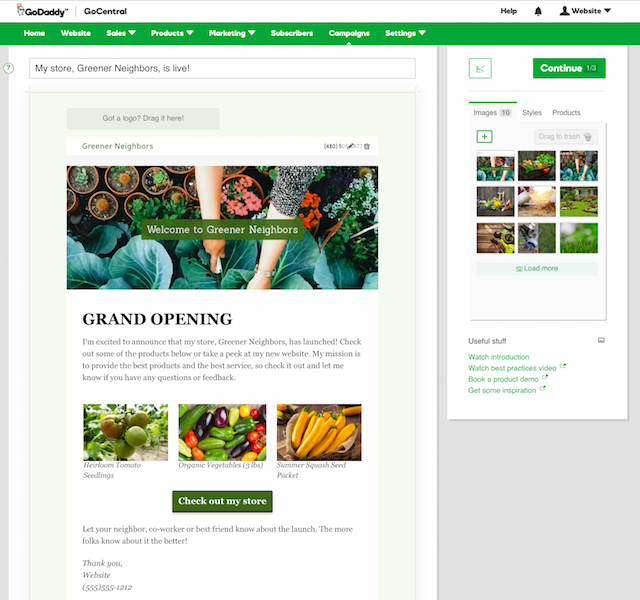
GoDaddy Email Marketing offers hundreds of professionally designed email templates to choose from. There are templates for welcome campaigns, product announcements, events, holidays, and more.
The templates are organized by category so you can quickly find ones that match your needs. You can also search and filter the template library based on industry, layout, campaign type, and other options.
All of the templates are mobile-optimized and the majority are editable directly within the app. You can customize colors, fonts, and images without needing to export HTML. For further customization, developers can edit HTML/CSS.
While GoDaddy provides ample templates to get started, most competitors offer a wider selection. Template quality on GoDaddy can be hit or miss compared to more polished options from Mailchimp.
Mailchimp
Mailchimp is celebrated for its vast template library with over 700 free email templates. The designs are high-quality and optimized for engagement across devices.
You can browse templates based on campaign objective, industry, or layout to find the perfect fit. Categories include welcome series, event promotions, newsletters, and more.
Every template is mobile-responsive and most are editable right within Mailchimp’s drag-and-drop editor. You can tweak template colors, fonts, and designs with just a few clicks. More skilled users can further customize templates by editing the HTML and CSS.
Mailchimp also makes it easy to create your own templates from scratch. With an intuitive WYSIWYG editor, you can build custom designs and save them to reuse later. You can even sell your custom templates through Mailchimp.
Overall, Mailchimp offers beautiful, polished templates suitable for all industries and campaign types. The expansive library and customization options make it easy to create on-brand, professional emails.
Winner: Mailchimp
Mailchimp wins for email templates thanks to the massive selection of creative, high-converting templates. While GoDaddy provides sufficient options to get started, Mailchimp’s templates are more abundant, attractive, and optimized for audience engagement across devices. The expansive library and customization features give brands the ability to consistently design emails that reflect their unique image.
Segmentation
GoDaddy Email Marketing
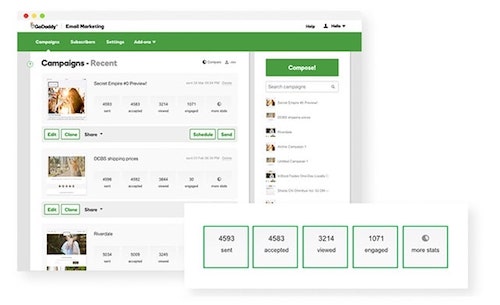
GoDaddy Email Marketing provides basic segmentation options to group contacts. You can create segments based on location, engagement with your emails, subscriber rating, and sign-up date.
The platform also allows you to import custom segments from your CRM. This lets you target groups based on attributes like demographics, interests, and purchase history.
While useful for basic segmentation, GoDaddy lacks more advanced options compared to Mailchimp. You can’t create dynamic segments that update automatically based on subscriber actions. The platform is also missing robust behavioral and e-commerce segmentation.
Overall, GoDaddy Email Marketing has simple segmentation tools to get started. However, the functionality is fairly limited.
Mailchimp
Mailchimp sets itself apart with powerful segmentation capabilities. You can create highly targeted segments using custom fields, subscriber behaviors, purchase activity, and more.
Dynamic segments automatically update based on user actions. For example, you can segment contacts who have opened an email in the last 30 days. This group will change in real time based on engagement.
Mailchimp also makes it easy to target customers based on onsite and purchase activity. Create segments like “Abandoned Cart” or “Purchased Product A” to deliver timely, relevant messaging.
With robust e-commerce data, Mailchimp enables personalization based on order history, lifetime value, products purchased, order frequency, and more. You can get very specific with your segments to drive conversions.
Mailchimp’s segmentation tools make it easy to group contacts however you want. Extensive criteria options and dynamic updating allow for highly targeted, personalized messaging.
Winner: Mailchimp
Mailchimp is the winner for segmentation, providing industry-leading options for grouping contacts. Mailchimp goes far beyond basic segmentation, with the ability to create customized segments that update dynamically based on subscriber behavior and attributes. These advanced tools make it possible to deliver hyper-personalized messaging that converts.
Analytics
GoDaddy Email Marketing

GoDaddy Email Marketing provides basic email analytics to help you track performance. You can view opens, clicks, subscriber engagement, and unsubscribes for each campaign.
The platform offers some segmentation of this data by location, link clicks, and activity type. You can also compare the results of different campaigns.
For deeper analysis, GoDaddy integrates with Google Analytics. This allows you to connect campaign data with website visits, conversions, and sales.
However, custom analytics and reporting options are limited compared to other email platforms. There are no options for A/B testing or advanced behavioral analysis.
While sufficient for simple campaign statistics, GoDaddy lacks robust analytics capabilities found in competitors like Mailchimp.
Mailchimp
Mailchimp is renowned for its powerful analytics that provides deep insights into all aspects of your email program.
The platform tracks every metric you need to optimize campaigns, from opens and clicks to shares of social media posts, spam reports, and unsubscribers. You can segment this data using custom filters.
Mailchimp also integrates with Google Analytics, allowing you to identify subscriber behaviors after email links are clicked. With e-commerce tracking, you can connect email campaigns to online sales.
A/B testing capabilities let you trial different subject lines, and content variations, and send times to determine what resonates best with your audience.
The platform’s comprehensive reporting and intelligent tools like predictive delivery insights help guide campaign optimization. Customizable dashboards allow you to monitor metrics important to your business.
Overall, Mailchimp stands out for its robust analytics that lends unparalleled visibility into email performance and subscriber engagement.
Winner: Mailchimp
Mailchimp wins for analytics thanks to its powerful reporting capabilities and intuitive tools that uncover actionable insights. While GoDaddy provides adequate campaign statistics, Mailchimp’s comprehensive analytics offer a much deeper analysis of subscriber behaviors and email effectiveness. The platform’s breadth of insights allows for continual optimization and improvement.
Unique Features
GoDaddy Email Marketing
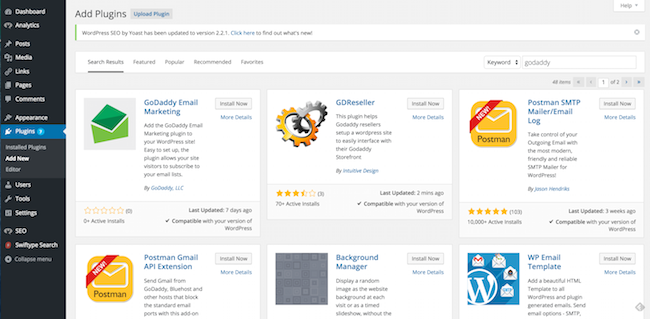
One standout feature of GoDaddy Email Marketing is its integration with the GoDaddy website builder. Having email marketing and web design/hosting in one platform can streamline website and email creation.
The tool also provides basic SMS capabilities. You can build SMS workflows to complement your email campaigns and drive better engagement on both channels.
For e-commerce stores, GoDaddy offers basic abandoned cart automation to recover lost sales. It will trigger emails to subscribers who left items in their online cart.
While useful, GoDaddy lacks more advanced features found with other email platforms. However, the integration with GoDaddy web services can be a selling point for existing customers.
Mailchimp
A unique aspect of Mailchimp is its extensive App Directory, which allows users to connect over 700 marketing apps. You can integrate email with tools like social media managers, CRM, automation, and more to streamline work.
Mailchimp also enables sophisticated multi-channel campaigns beyond email. You can orchestrate journeys with postcards, social ads, SMS, and other channels for a unified experience.
The platform is also one of the few to offer e-commerce features targeted to digital sellers. With a built-in cart and payment processing, it can fully power online stores.
Advanced technical users can leverage Mailchimp’s extensive API and webhook options to build custom functionality. You can integrate your own apps and services or develop unique automation tailored to your business.
With endless options for integration and expansion, Mailchimp provides more opportunities to enhance your marketing stack.
Winner: Mailchimp
Mailchimp wins for unique features thanks to the platform’s expansive integrations, multi-channel capabilities, and advanced customization options. While GoDaddy provides useful integration with its web builder, Mailchimp enables connection to hundreds of apps for marketing automation. Developers can also leverage APIs to build custom solutions. For multi-channel coordination and deep customization, Mailchimp is the leader.
3. Ease of Use
GoDaddy Email Marketing

GoDaddy Email Marketing offers an intuitive drag-and-drop editor that makes it easy to build and send emails without coding knowledge. The visual editor has a clean interface with logical menus and options.
Creating basic emails, setting up automation, and adding subscribers can be picked up quickly by most users. The platform provides sufficient templates and documentation to get started.
However, more advanced features and workflows can require some learning to master. GoDaddy Email Marketing lacks some of the intuitive guidance and educational resources that competitors offer.
The platform experience is generally positive but has some quirks. Some users report frustrations with inconsistencies in the editor. Ongoing bugs can also hamper usability.
Overall, GoDaddy Email Marketing provides a decent user experience suitable for small businesses. But larger, more sophisticated users may find it overly simplistic.
Mailchimp
Mailchimp sets the standard for intuitive email marketing platforms. Both beginners and experts praise its clean, well-organized interface.
It’s easy to start sending broadcasts, create automation, customize templates, and monitor analytics. Handy guidance elements explain key features to new users.
Robust educational resources like step-by-step tutorials, webinars, and an online community help users continually master Mailchimp.
The platform offers ample capabilities for technical users while still being straightforward enough for novices. World-class customer support adds to the user-friendly experience.
Mailchimp’s polished design and education make it easy for any skill level to create professional, effective email campaigns. The intuitive experience allows you to focus on connecting with your audience.
Winner: Mailchimp
Mailchimp wins for the best overall user experience. The platform’s clean interface, educational resources, and stellar customer support help both beginners and experts succeed. While GoDaddy Email Marketing has a decent editor, Mailchimp sets the bar for usability across all functions. Its stellar reputation is built on empowering anyone to master email marketing with an intuitive platform.
4. Email Deliverability
GoDaddy Email Marketing
GoDaddy Email Marketing provides adequate deliverability to get started but lacks some of the more advanced deliverability features of competitors.
The platform has basic tools to help avoid spam filters like the ability to authenticate your sending domain. Templates are optimized to comply with CAN-SPAM regulations.
However, there are limited options for ongoing deliverability monitoring and optimization. There are no proactive tools to identify issues that could harm future delivery.
GoDaddy does not publish its aggregate deliverability rates or provide visibility into factors impacting your email performance. There is also minimal ability to dig into subscriber engagement at an individual level.
While sufficient for smaller email programs, GoDaddy’s deliverability capabilities lag behind leaders in the space.
Mailchimp
Mailchimp is renowned for providing stellar email deliverability, reinforced by a consistent 99% aggregate monthly delivery rate.
Advanced authentication and security measures prevent emails from being marked as spam. Real-time monitoring identifies potential issues, and deliverability experts can provide optimization recommendations.
Granular engagement data allows you to analyze open and click rates for every subscriber. Combined with factors like device data, location, and email client, you can fine-tune deliverability.
Mailchimp’s proprietary algorithm considers over 75 factors that influence deliverability for the best possible performance. Customers benefit from the scale of Mailchimp’s global email footprint.
With proactive monitoring, individual subscriber visibility, and aggregate deliverability rates published, Mailchimp provides complete transparency into email delivery and engagement.
Winner: Mailchimp
Mailchimp emerges as the clear winner for superior email deliverability. While GoDaddy Email Marketing offers adequate performance, Mailchimp combines sophisticated optimization technology, granular analytics, and deliverability expertise to achieve industry-leading inbox placement rates. Mailchimp’s total transparency and proactive approach gives customers confidence in reaching their inbox.
5. Customer Support and Community
GoDaddy Email Marketing
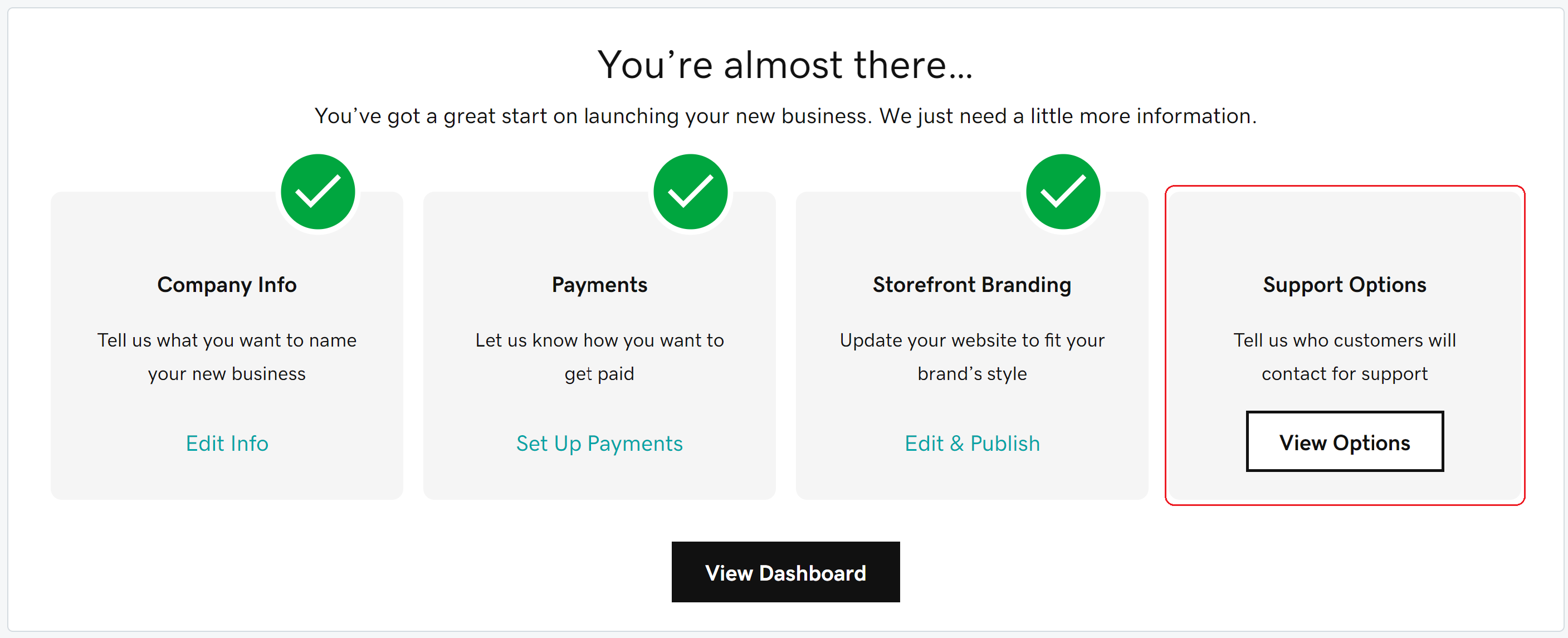
GoDaddy provides the standard support channels like email, phone, and live chat to assist Email Marketing customers. Support is available 24/7 to all paid users.
Average phone wait times are around 5-10 minutes. Email and chat support tend to respond within 8-12 hours based on user reviews.
The support team is able to assist with technical issues and platform questions. However, some customers report inconsistencies in the depth of expertise.
The educational resources in the product itself are relatively sparse. While support meets baseline expectations, it doesn’t stand out from competitors.
Mailchimp
Mailchimp is renowned for its stellar customer support, which contributed to the platform’s rapid growth.
Standard email and chat support are available 24/7 and respond quickly, with the majority of requests resolved on the first interaction. Phone support is also available during extended business hours.
Mailchimp’s ChimpAnswers knowledge base has over 1,000 articles to help users self-serve answers to product questions. The company also offers free email marketing courses.
With exceptional self-service content, knowledgeable support staff, and a thriving user community, Mailchimp enables customers to get the help they need quickly and accurately.
Winner: Mailchimp
Mailchimp emerges as the winner for their stellar customer support and community options. While GoDaddy covers the basics, Mailchimp goes above and beyond with extensive educational resources, active forums, timely and knowledgeable assistance, and an overall commitment to customer success. The community support ecosystem empowers users to maximize results.
6. Integrations
GoDaddy Email Marketing
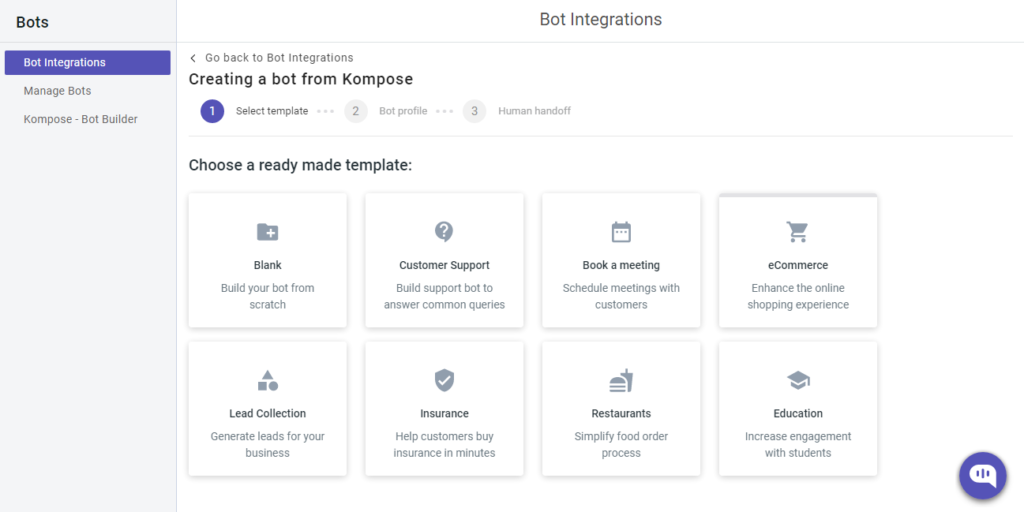
GoDaddy Email Marketing offers native integration with GoDaddy’s website builder, domain registrar, and other web services. This allows seamless website and email creation within one ecosystem.
The platform also integrates with common third-party apps like social media platforms, analytics tools, CMS platforms, and popular CRM software. Key integrations include Facebook, YouTube, Instagram, WordPress, MailChimp, and HubSpot.
GoDaddy provides Zapier integration to connect with thousands of apps for sales, support, operations, and marketing needs. There are also open APIs available.
However, GoDaddy has a smaller integration marketplace compared to some competitors. Options for connecting niche applications or creating custom integrations are limited.
Overall, GoDaddy covers the key integrations needed for small businesses but lacks robust options for large, complex organizations.
Mailchimp
A standout aspect of Mailchimp is its App Directory which features over 700 marketing integrations. Users can connect everything from social and CRM tools to e-commerce platforms, webinar software, survey builders, and more.
Popular integrations include Facebook, Instagram, Twitter, Salesforce, Shopify, Zendesk, Eventbrite, and dozens of Google services. Zapier extends options for connecting databases, apps, and workflows.
Mailchimp also has a robust API and webhook options for building custom solutions such as web forms and ad campaigns. Developers and technical users can integrate virtually any tool or platform that isn’t covered by the official integrations.
With endless connection possibilities to enhance your marketing stack, Mailchimp is the leader in marketing integrations. The platform grows with any business.
Winner: Mailchimp
Mailchimp wins for superior integrations, thanks to the platform’s vast App Directory, open API, and webhooks. While GoDaddy covers the basics, Mailchimp enables connections to hundreds of niche marketing tools. Custom integration options provide unlimited growth potential. For a powerful, unified marketing ecosystem, Mailchimp is the clear choice.
7. Pricing
GoDaddy Email Marketing
GoDaddy Email Marketing offers 4 paid plans:
- Basic – $11.99/month
- Premium – $21.99/month
- Commerce – $24.99/month
- Commerce Plus – $44.99/month
The Basic plan supports up to 500 contacts and offers basic features like email editor, templates, and automation. Premium doubles contacts and adds more robust features like A/B testing.
Commerce supports 10,000 contacts with advanced segmentation, while Commerce Plus supports 25,000 contacts and enhances automation with tags and workflows.
All paid plans include email and chat support. Overall, GoDaddy is one of the most affordable solutions, though advanced features require upgrading to higher tiers.
Mailchimp
Mailchimp has a free plan and 3 paid tiers: Essentials at $13/month, Standard at $20/month, and Premium at $350/month billed annually.
Lower tiers are suitable for small businesses. The Premium plan adds powerful enterprise features like journey builder, workflow automation, and advanced analytics.
Mailchimp’s free plan lets you send 1,000 emails per month with basic automation for your email marketing campaigns. Overall, Mailchimp offers cost-effective plans ideal for budget-conscious users.
Winner: Tie
GoDaddy Email Marketing and Mailchimp end up in a tie for pricing. GoDaddy starts at an incredibly affordable $5/month while still providing decent capabilities for micro businesses. However, features are limited compared to Mailchimp. A
t higher tiers, Mailchimp provides excellent value with more robust options and better deliverability. For the best free plan, Mailchimp wins, but GoDaddy takes the title for the lowest-paid entry point. The ideal solution comes down to business size and needs.
8. Reviews and Reputation
GoDaddy Email Marketing
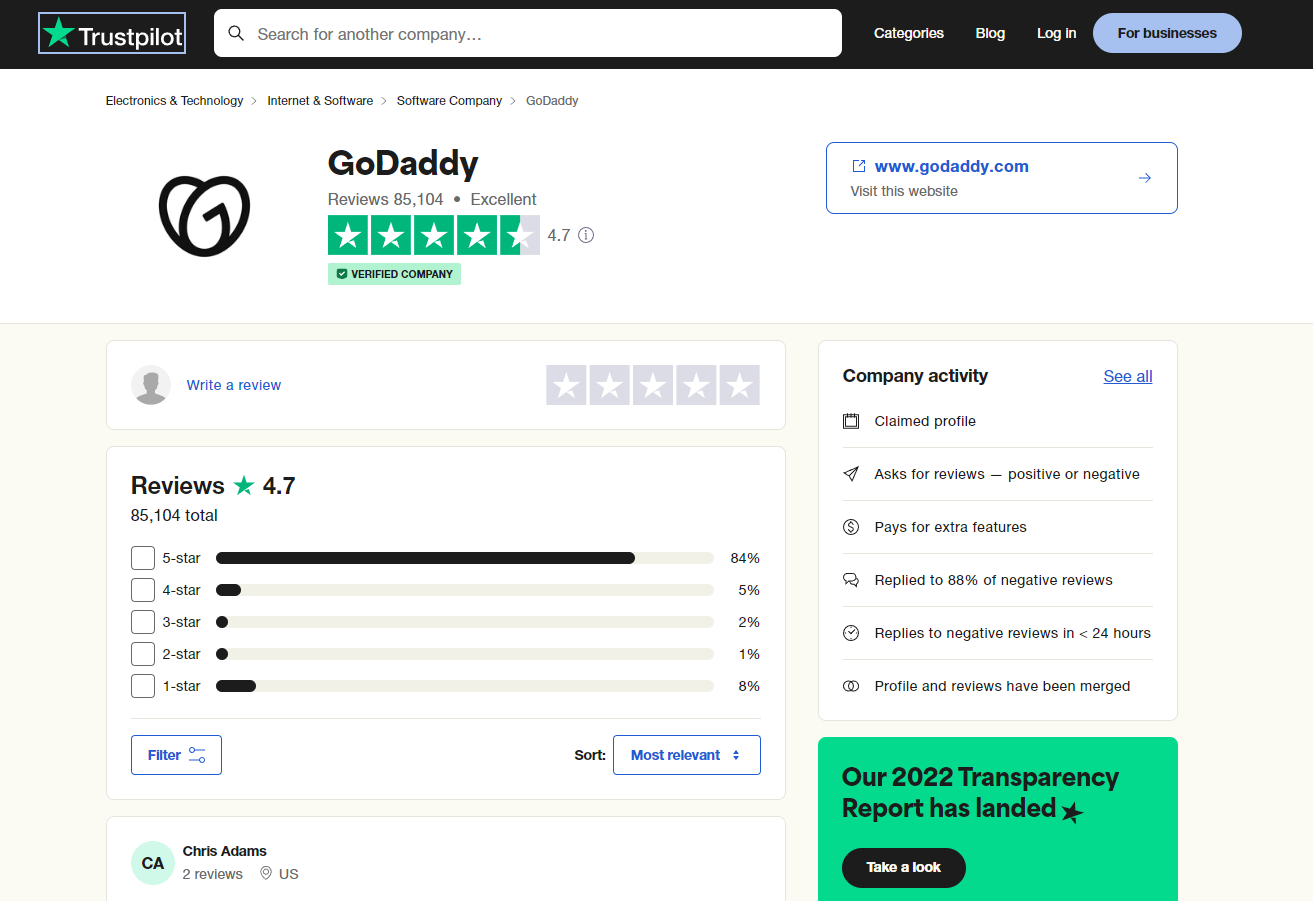
GoDaddy Email Marketing earns positive but mixed reviews from users. On platforms like Trustpilot, it holds around a 4.7 out of 5-star average.
Users praise the web hosting service for its intuitive drag-and-drop editor, affordable pricing, online store feature, and basic automation capabilities. Many small business owners are satisfied with the core features.
However, some users felt the platform lacked more advanced functionality needed for larger email programs. Some noted occasional deliverability issues. Others disliked the interface inconsistencies.
Compared to competitors, reviews indicate GoDaddy provides decent email marketing for starter needs. But businesses may outgrow it if they scale up or need more sophisticated capabilities.
Mailchimp
Mailchimp enjoys an excellent reputation as the email marketing leader. The platform earns an 8 out of 10 average on review sites like TrustRadius.
The vast majority of users are highly satisfied with Mailchimp’s intuitive interface, deliverability, automation, and analytics. Many note exceptional customer support.
Some users feel Mailchimp is more complex for beginners compared to entry-level tools. A minority report occasional glitches or deliverability hiccups.
Overall, the platform earns outstanding reviews for its robust feature set, stellar performance, and polished user experience suitable for any business size. Most agree it’s the best all-around email solution.
Winner: Mailchimp
Based on user reviews, Mailchimp emerges as the winner over GoDaddy Email Marketing. While both online marketing services satisfy basic email needs, Mailchimp earns consistently glowing feedback for its extensive capabilities, reliability, and intuitive experience. For most use cases, Mailchimp provides superior email marketing based on real customer experiences.
9. FAQ’s
GoDaddy Email Marketing FAQs
- How much does GoDaddy Email Marketing cost?
GoDaddy Email Marketing starts at $11.99/month for the Basic plan. More advanced plans range from $21.99-$44.99/month. - What is the maximum list size on GoDaddy Email Marketing?
The entry Basic plan supports up to 500 contacts. The Premier plan supports up to 25,000 contacts. - Does GoDaddy Email Marketing offer free templates?
Yes, GoDaddy provides hundreds of free, professionally designed email templates to choose from. - Can I integrate GoDaddy Email Marketing with my CRM?
GoDaddy offers integrations with popular CRMs like Salesforce, HubSpot, Zoho CRM, and others. - Is there A/B testing with GoDaddy Email Marketing?
A/B testing is only included in the Standard plan and higher tiers. The Basic plan does not include it.
Mailchimp FAQs
- What features are in the free Mailchimp plan?
The free plan supports up to 2,000 contacts with basic email and automation capabilities. - Does Mailchimp offer phone support?
Yes, Mailchimp provides 24/7 phone support in addition to live chat and email ticketing. - Can I customize Mailchimp email templates?
Most Mailchimp templates are fully customizable right within the drag-and-drop editor. HTML/CSS customization is also available. - How reliable is Mailchimp’s deliverability?
Mailchimp has world-class deliverability with an aggregate 99% monthly delivery rate. - Are there e-commerce features in Mailchimp?
Yes, Mailchimp has dedicated e-commerce features like cart/checkout and customer segmentation by purchase activity.
Final Thoughts
Choose GoDaddy Email Marketing if…
GoDaddy Email Marketing is a good choice if you’re a starter looking for the most affordable option or already using GoDaddy for web hosting. The seamless integration with other GoDaddy products can be beneficial. GoDaddy is sufficient for microbusinesses planning basic email campaigns and automation.
Choose Mailchimp if…
Mailchimp is the best choice if you want advanced features like sophisticated automation and segmentation, superior deliverability, or need to scale up your email marketing efforts. Mailchimp caters equally well to growing small businesses and large enterprises with sophisticated email programs. The platform’s polished experience and stellar reputation make it the leader.
You may also be interested in checking out some Mailchimp alternatives to help with the evaluation process.
